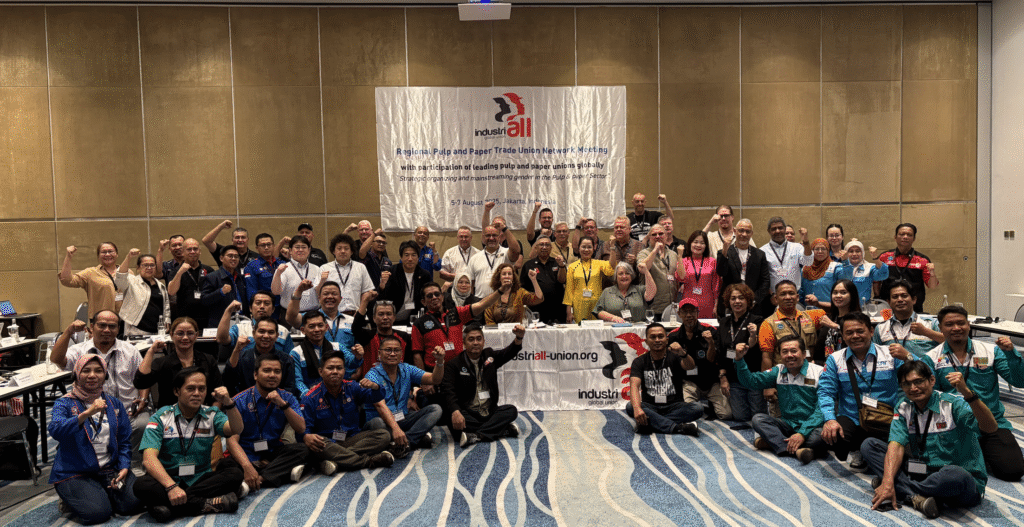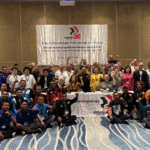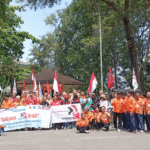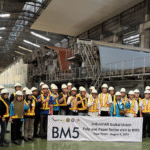13 August, 2025IndustriALL Global Union affiliates in the pulp and paper sector strengthened ties at a recent meeting in Jakarta, emphasising the importance of international connections to resist exploitation by powerful industry players.
At the pulp and paper trade union network meeting on 5-7 August in Jakarta, Indonesia, 70 paper union representatives from Indonesia, Thailand, Philippines, Malaysia, Vietnam, Australia, Belgium, Brazil, Finland, Japan, New Zealand, Sweden, USA and Uruguay discussed key challenges facing the sector. Originally a regional network meeting, it was opened up to the global sector work group unions to showcase progress made in building a powerful regional sector network over the last decade, with the global co-chairs from USW and Pappers attending.
Paper workers face widespread precarious employment, unsafe and unhealthy working conditions, underrepresentation of women, excessive working hours, automation, early retirement schemes, and declining appeal of the sector for younger workers.
Denise Campbell-Burns, chair of the regional network, said:
“We recognize the need to strengthen information exchange and collaboration to manage industrial relations with global companies in the face of aggressive multinational acquisitions. IndustriALL’s coordination role is crucial in bringing affiliates together and supporting our sector.”
While packaging and tissue markets continue to grow, printing paper demand is falling. New sustainability regulations and digitalization pose further challenges. Major mergers, such as Suzano’s acquisition of Kimberly-Clark’s global tissue operations, the merger of International Paper and DS Smith, and that of Smurfit Kappa and WestRock ,have led to factory closures and job changes, affecting workers in all regions.
Unions committed to intensifying organizing efforts through recruiting young and outsourced workers, and rolling out organizers’ developments programmes, a joint initiative between IndustriALL’s South East Asia office and German union IG Metall.
Japanese union KAMPIA RENGO has launced gender initiatives to boost women’s membership and make paper companies a place both men and women can work comfortably.
In the Pacific region, Australia’s CFMEU manufacturing division have formed a new Timber, Furnishing and Textiles Union (TFTU). In New Zealand, the Pulp and Paper Workers' Union is contending with closures, including Winstone Pulp and Kinleith Tokoroa Paper Division.
In Indonesia, following a successful constitutional court challenge to the Omnibus Law, unions are now prioritizing strong collective agreements to safeguard rights. Unions in the Philippines and Thailand are facing the issue of long working hours, which could compromise union work, as well as health and safety.
Belgian unions are taking industrial action against job losses caused by deindustrialization, calling for a sustainable transition with retraining and upskilling supported by social partners. Brazilian unions are highlighting environmental concerns in the paper industry and pressing for more cross-regional union collaboration.
The meeting concluded with an action plan to:
- Hold regular global meetings focusing on safety, recruitment, and major companies such as Suzano, April, APP and Westrock.
- Launch a Proud pulp & paper worker campaign to build solidarity and counter company narratives.
- Conduct targeted research on pulp production and supply chains to strengthen unions’ understanding of industry issues and leverage points.
- Create a web-based database for affiliates to share and access company information.
- Establish exchange programmes between regional affiliate networks to enhance organizational knowledge.
- Host a pulp and paper networking event at IndustriALL’s 4th Congress to advance global networking.
Tom Grinter, IndustriALL pulp and paper director, said:
“New technology, including artificial intelligence, must be human-centred. Technology oligarchs are shaping the rules of work, but workers must rewrite them to ensure dignity and a voice, free from algorithmic control and ratings.”
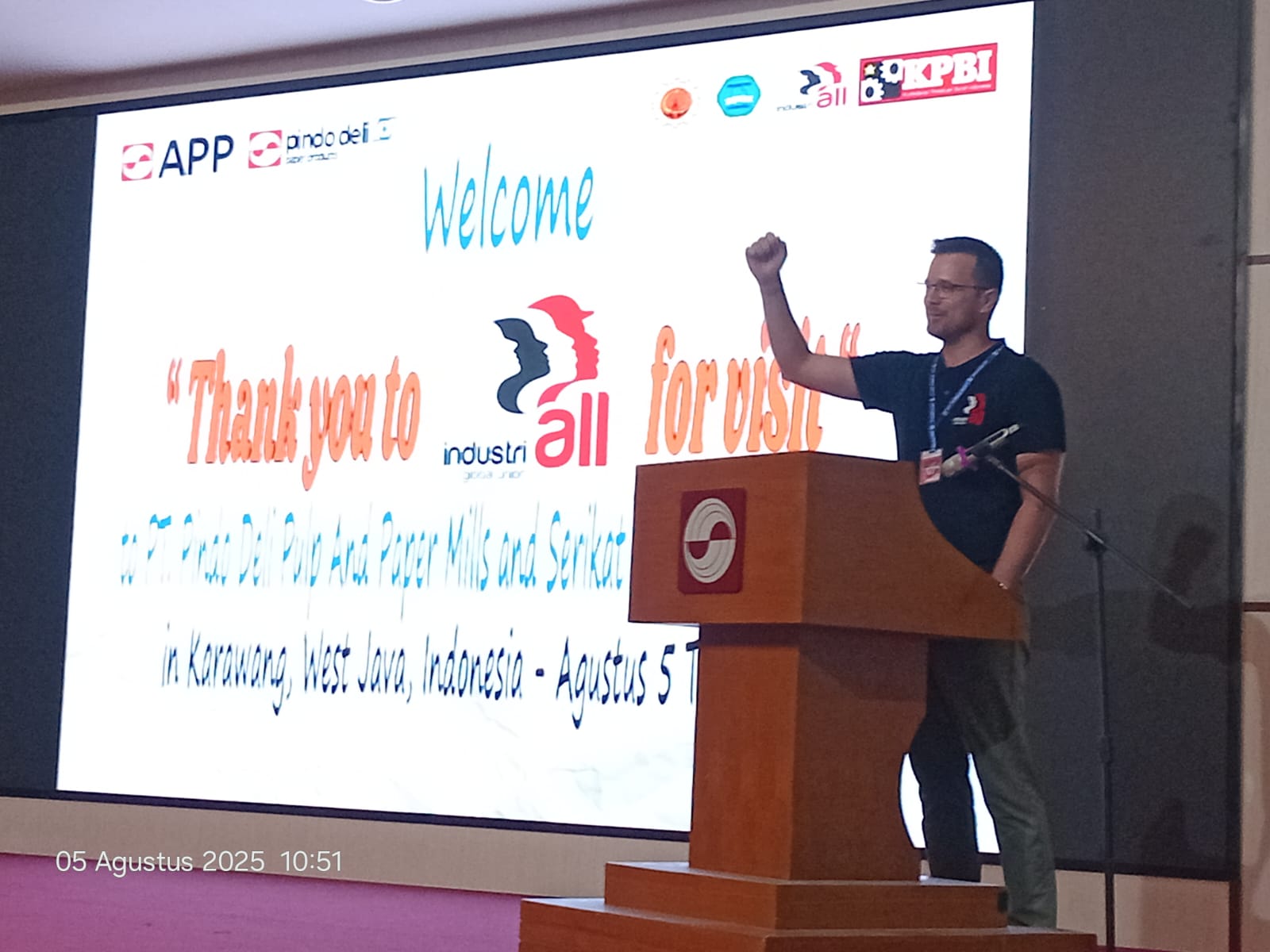
Sector director Tom Grinter
During the meeting, unionists visited Fajar Paper and Pindo Deli, supported by Indonesian unions CEMWU and FSP2KI, along with company management. Both sites have over 2,000 union members, demonstrating examples of constructive industrial relations.
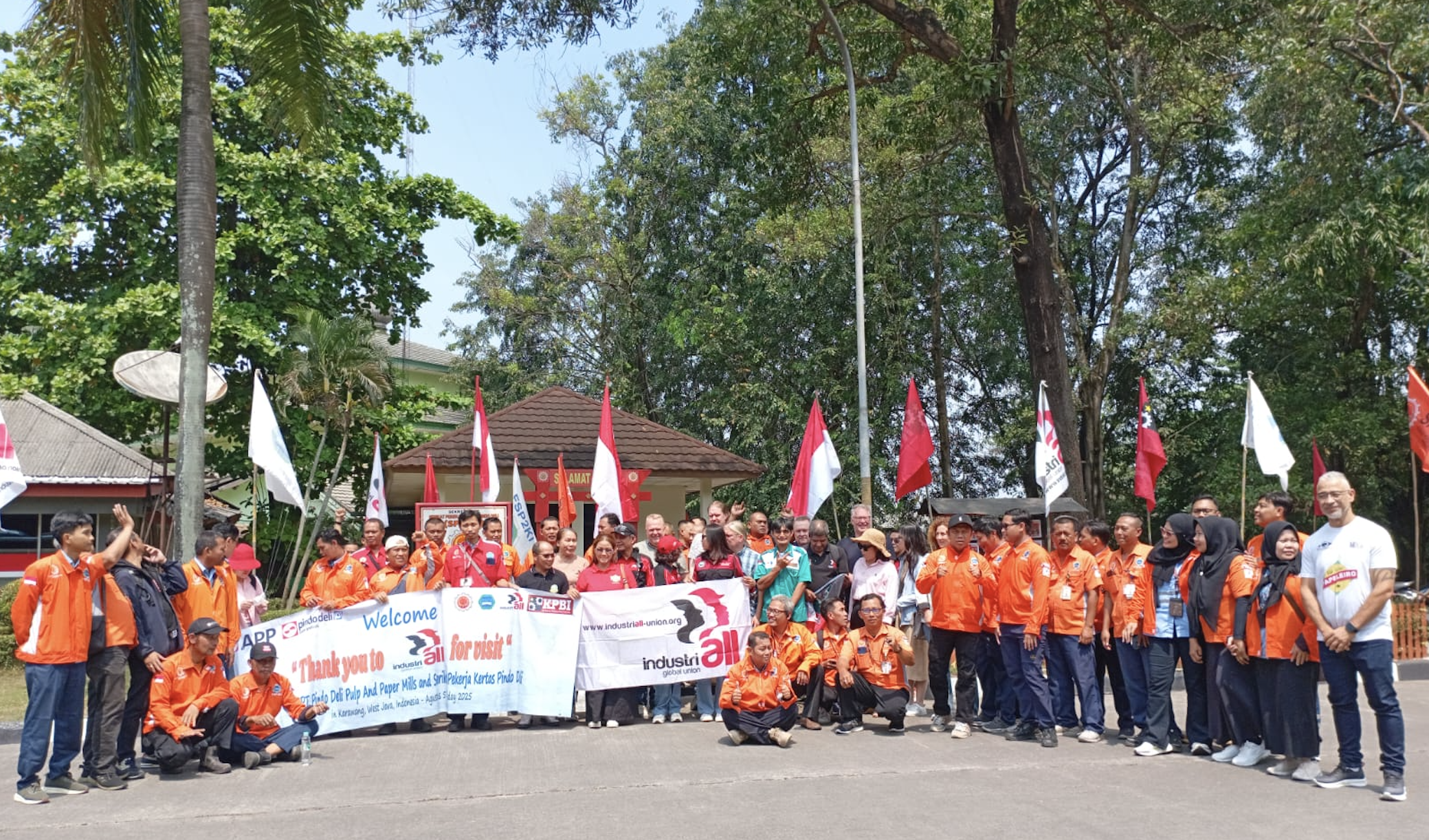
Visit to Pindo Deli
